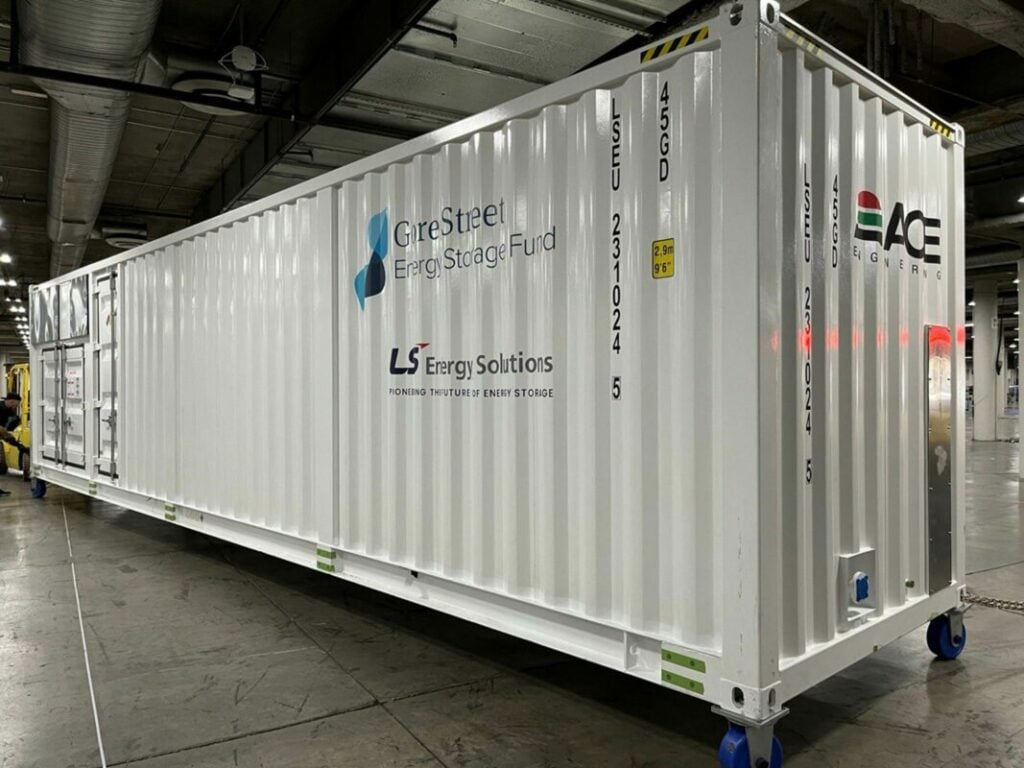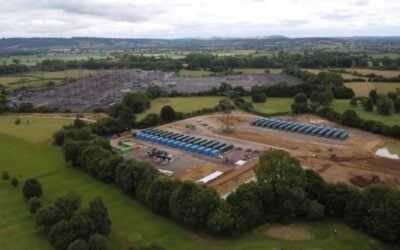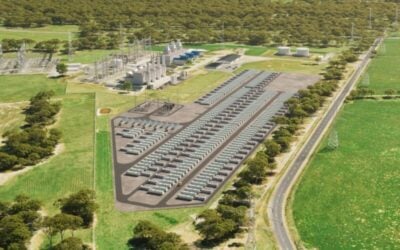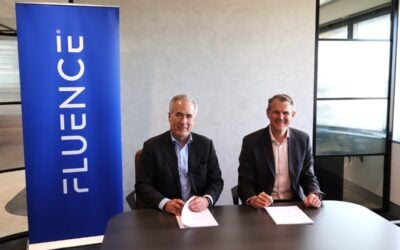
Another roundup of news in brief from the UK’s busy energy storage market with project and financial news from Copenhagen Infrastructure Partners, Gore Street Energy Storage Fund, and a tax break for home batteries.
CIP-backed developer gets 1.5GW planning approvals
Battery energy storage developer Alcemi has been awarded planning permission for two battery energy storage system (BESS) projects totalling 1.5GW in Scotland.
Enjoy 12 months of exclusive analysis
- Regular insight and analysis of the industry’s biggest developments
- In-depth interviews with the industry’s leading figures
- Annual digital subscription to the PV Tech Power journal
- Discounts on Solar Media’s portfolio of events, in-person and virtual
The portfolio consists of the 1GW/2GWh Rawhills Energy Storage projects in Coalburn, south of Glasgow and the 500MW/1,000MWh Devilla Energy Storage project located in Fife, north of Edinburgh.
Both projects were developed in collaboration with Copenhagen Infrastructure Partners (CIP) through their Flagship Funds, which focuses on climate solution technologies such as offshore and onshore wind, solar photovoltaics (PV), and biomass.
CIP confirmed that the 500MW Devilla project was ready to commence construction in December last year. According to CIP the final investment decision for the projects is expected later this year, with construction to commence shortly afterwards.
To read the full version of this story visit Solar Power Portal.
This story by Lena Dias Martins.
Exemption to Value Added Tax comes into effect
As of 1 February 2024, the UK government has removed the VAT charge for domestic battery energy storage systems (BESS) under any circumstance.
The policy change, initially announced in December 2023, followed a lengthy campaign by both Solar Energy UK and parliamentarians to include retrofitted BESS in the 20% tax exemption.
As a result of the Spring Statement 2022, energy-saving domestic equipment such as heat pumps and roof-mounted solar have been exempt from the VAT, alongside BESS if it is installed with other energy-saving materials such as solar.
The Value Added Tax (Installation of Energy-Saving Materials) Order 2024 applies to BESS which are retrofitted to an existing installation and will continue to include them until 31 March 2027.
The law also extends the same exemption to water-source heat pumps and smart diverters, which can be used to transfer solar power into hot water tanks when generation exceeds consumption.
More than 1.2 million solar-powered homes are now able to benefit from the tax cut, alongside the inherent advantages of a BESS as a solar power feature, storing power after the sun sets and significantly increasing financial savings on energy bills.
To read the full version of this story visit Solar Power Portal.
This story by Ottilie Von Henning.
Gore Street joins other listed funds in voicing revenue concerns
Gore Street Energy Storage Fund has joined other battery energy storage system (BESS) investors in expressing concerns over the current challenges regarding low revenue in the GB market.
Both Harmony Energy Income Trust and Gresham House Energy Storage Fund have expressed their concerns over the low revenues many across the GB BESS market are being subject to. This has primarily been due to assets not being able to participate in balancing the GB grid or replacing gas-fired generation to their fullest capability.
Indeed, Gore Street has now weighed in on the current market challenges expressing that its portfolio diversification serves as the “primary driver of the Company’s stable revenue and profit profile which has allowed the Company’s portfolio to generate a consistent revenue profile on a consolidated basis”.
The organisations achieved an estimated quarterly revenue of £15.1/MW (US$18.93/MW) per hour, consistent with the £15.1/MW per hour generated during the first half of the financial year (FY). Gore Street stated that this stable revenue profile has been achieved through a “diversified portfolio incorporating multiple uncorrelated markets, system chemistries and durations”.
To read the full version of this story visit Solar Power Portal.
This story by George Heynes.
Energy-Storage.news’ publisher Solar Media will host the 9th annual Energy Storage Summit EU in London, 20-21 February 2024. This year it is moving to a larger venue, bringing together Europe’s leading investors, policymakers, developers, utilities, energy buyers and service providers all in one place. Visit the official site for more info.






